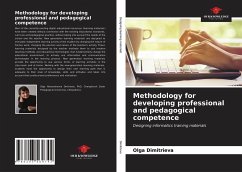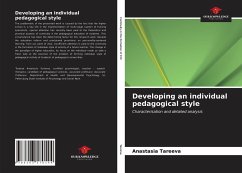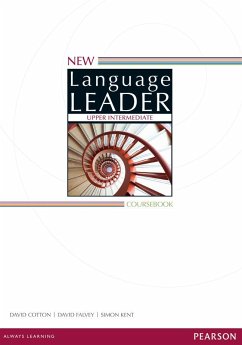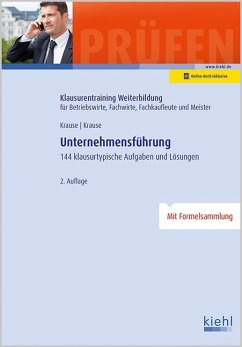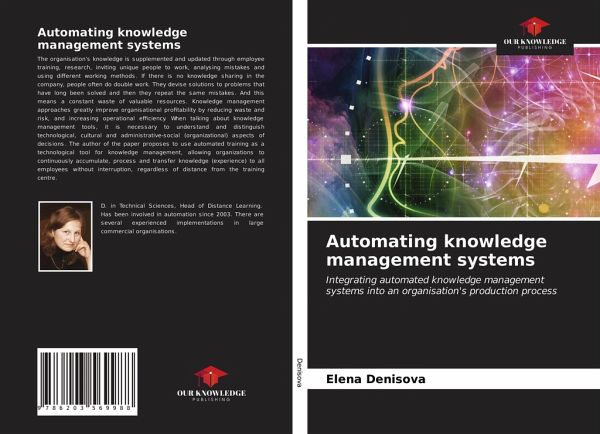
Automating knowledge management systems
Integrating automated knowledge management systems into an organisation's production process
Versandkostenfrei!
Versandfertig in 6-10 Tagen
44,99 €
inkl. MwSt.

PAYBACK Punkte
22 °P sammeln!
The organisation's knowledge is supplemented and updated through employee training, research, inviting unique people to work, analysing mistakes and using different working methods. If there is no knowledge sharing in the company, people often do double work. They devise solutions to problems that have long been solved and then they repeat the same mistakes. And this means a constant waste of valuable resources. Knowledge management approaches greatly improve organisational profitability by reducing waste and risk, and increasing operational efficiency. When talking about knowledge management ...
The organisation's knowledge is supplemented and updated through employee training, research, inviting unique people to work, analysing mistakes and using different working methods. If there is no knowledge sharing in the company, people often do double work. They devise solutions to problems that have long been solved and then they repeat the same mistakes. And this means a constant waste of valuable resources. Knowledge management approaches greatly improve organisational profitability by reducing waste and risk, and increasing operational efficiency. When talking about knowledge management tools, it is necessary to understand and distinguish technological, cultural and administrative-social (organizational) aspects of decisions. The author of the paper proposes to use automated training as a technological tool for knowledge management, allowing organizations to continuously accumulate, process and transfer knowledge (experience) to all employees without interruption, regardlessemployees without interruption, regardless of distance from the training centre.





